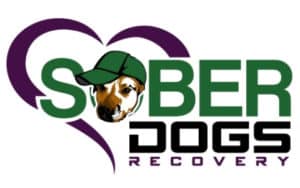Death of a loved one, problems at work, dumped by your boyfriend or girlfriend, terrible drug cravings. Any of these things can happen on a day-to-day basis for us addicts. When we get sober, the world doesn’t become this magical place where there are no problems. Usually, it’s quite the opposite. For many of us (definitely for me), when I got sober I had to deal with all the wreckage from my past as well as the typical daily problems everyone faces. If I didn’t have a wonderful support group around me I don’t think I would have stayed sober through many of these problems.
Importance of A Support System In Recovery
Surrounding yourself with a positive support group can help you get through obstacles and problems surrounding your everyday life as well as any problems or issues surrounding your recovery. Peer support can be defined as the process of giving and receiving nonprofessional, nonclinical assistance from individuals with similar conditions or circumstances to achieve long-term recovery from psychiatric, alcohol, and/or other drug-related problems. (Source). There are many benefits of having a positive group of people who support you and your recovery. Some of the benefits are:
- Having someone to lean on in tough times
- A positive person to call whenever you feel depressed
- Feeling less isolated and lonely
- Having people to call when a drug craving hits
- People to talk to who won’t judge you or your problems
- Gaining a sense of empowerment from your support network
- Learning new coping skills
- Having others that you can relate to
- Gaining experience, strength, and hope from your support group
- Learning to open up with others and express your feelings
- Reducing depression and anxiety by knowing you have an awesome support network
- Staying motivated to continue in your recovery and remain sober
- Getting honest and practical feedback about your struggles
- Being there for your support group when someone else is struggling

People in the 12-step programs I attend have been telling me since day one, “Build up an army of positive support, that way you have plenty of people to call during any struggle”. Over 2 years, I have steadily added numbers to my phone and built wonderful relationships with positive people who are there for me through thick and thin.
In this video, Johann Hari explains how connecting and bonding is the key to breaking the cycle of addiction and rebuilding a positive healthy life.
The First Step To Building A Support Network Is To Open Up and Step Out Of Your Comfort Zone
Building a support network takes time and effort. I had to go outside my comfort zone on many occasions to get someone’s number or to open up and tell people when I’m struggling. The thought of asking for help was very alien to me, but essential for sobriety. 
Every time I add a number to my contacts I get more strength and reinforce my recovery toolbox. A mentor of mine in recovery always tells me
“You need to build up my defences against that next drink or drug, and one of the best ways to do that is to build a positve support network”.
One of the best ways for me to stay sober is by surrounding myself with a positive support network. Stepping out of your comfort zone is the first step to building your support network. It will feel weird and awkward in the beginning but this will fade over time.
Building Your Support Group
The best way to start building your army of support is simply opening up to people. It may be a neighbor that’s in recovery or a recovery group online, the key to getting started is talking to people and being honest.
Places To Build Your Support Network:
-
12-Step Meetings (AA, NA)

12-step meetings are a great place to meet people in recovery. Many of these people have been through the same struggles you are going through and can relate to any issues you may be having. 12-step meetings are a great place to meet a sponsor. A sponsor can be a great person to start your recovery team.
-
Outpatient/ Inpatient Rehab
Staying connected with people you met in treatment is a great way to build sober support. Just make sure they are committed to their recovery and are not actively using or drinking. 
-
Church Groups/ Faith-Based Groups/ Spiritual Groups
Church groups and spiritual groups are positive places to meet others in the community who share the same faith as you.
-
Volunteer and Community Programs
Volunteer organizations and community recovery organizations are a great place to meet others who are committed to helping the community. If a person is willing to volunteer their time they are typically a good person to have in your support network.
-
Healthcare Professionals

Treatment counselors, nurses, and doctors are all great people to have on your sobriety support team. I still talk with my counselors from outpatient rehab, as well as an addiction doctor I see regularly.
-
Family and Friends
Leaning on family and friends during tough times is something everyone does, but this is especially true for people in recovery. It can be hard to open up to family and friends when you are struggling but it can be life-saving.
-
Online Recovery Groups and Websites
Every social media platform has recovery and sobriety groups. It’s very easy to join these groups and find people from all across the globe that are in recovery. 
Many people prefer the online approach in early recovery because it’s private and not too formal. That’s fine. Find someone on social media that you feel comfortable opening up to. Just sending a message to someone can be a very freeing experience. Just admitting some of your faults or issues to someone else can be very hard, but it can open up a whole new way of thinking for you. This will help you break the ice for opening up to people face-to-face.
Use Social Media For Good
Social media can be an addiction, but there are positive ways to use social media. I have built up a vast support network of people who are in recovery from all over the world. Facebook, Instagram, Twitter, Pinterest, LinkedIn, it doesn’t matter which one you use. All you have to do is search sober or recovery and you will find groups and like-minded people.
I could talk to people as far away as Tunisia and Japan about sobriety. It’s a crazy feeling talking to someone in Japan who is thousands of miles away and lives in a completely different culture, yet we have so much in common. If you’re having trouble finding positive recovery people on any of these platforms click on my profile and you can scan my friends and followers.




** Make sure you do a quick scan of people when using social media. Look at their posts and profile to make sure they are a real person and real account.**
Always Connected
I have come to accept my phone as a wonderful tool in my recovery tool-box. At any given time I have dozens of people I can call or text who will help with any sobriety related issue. I have built up this vast array of recovery-related phone numbers 1 at a time over the past 4 years. Now I have over 100 numbers of people in recovery.
If for some reason I can’t reach people on the phone, I can always go on social media and see tons of recovery and sobriety related content. Sometimes just flipping through Instagram with the hashtag #soberlife is a huge motivation for the day to stay on the right path of recovery.

Putting Pride and Ego Aside
When you’re building your support network you need to step outside your comfort zone. To do this, you need to let your ego. Walking into a strange meeting, church, rehab or anyplace can be an awkward feeling especially when it’s your first time. Be humble and don’t be afraid to ask for help. You’re going to feel vulnerable and that’s ok, it’s part of recovery.
When I ran my life on my terms it ended with me in prison. I had to put my pride and ego aside and accept the fact that I had a major problem with drugs and alcohol. I need to ask for help and listen to other people. One of my favorite quotes I hear all the time in AA meetings is:
“Take The Cotton Out Of Your Ears and Put It In Your Mouth”
I love that quote because in early recovery I thought I knew it all and that the world revolved around me. As soon as I took the cotton out of my ears and put it in my mouth I was able to listen and hear everything I needed to. When I first walked into a 12-step meeting, I had to accept that I didn’t know everything about recovery. Learning to listen is essential to my recovery, and building up my defenses against a relapse.
My Support Network

I was so depressed afterward and I started looking through my phone. I talked with 3 different people in my support network who all took time out of their day to just listen and talk with me. Each of them offered to come and meet me. I would have accepted their offer, but my Dad was with me and he is number 1 in my support network alongside my Mom. I got through this tough day with the help of my awesome support network.
-Kyle Ruggeri-
Related Questions
How Do I Support My Loved One In Recovery?
You need to educate yourself on the disease of addiction. Learn what to do and what not to do. This article on The Difference Between Helping and Enabling is very important. You need to have patience dealing with someone in recovery. Both you and they are going to make mistakes but the key is to stay on track with recovery. I strongly recommend support groups for family and friends. My parents went to groups that are for loved ones of addicts and it taught them a ton about addiction and recovery. Look up these support groups in your area (Al-Anon, Nar-Anon).
How Early In My Recovery Should I Start Building My Support Network?
A.S.A.P! I would recommend starting to reach out right away. Early recovery is the hardest. This beginning period is when a person needs to lean on others for help and guidance. I think the first day someone gets out of rehab or jail they should go to a 12-step meeting or outpatient program if possible.
Sources:
https://www.recoveryfirst.org/blog/understanding-support-networks-in-recovery-from-addiction/
Articles
A common question many people in recovery from drugs get asked is "Why can't you have a drink?" or "If alcohol wasn't your drug of choice why can't you drink?". Everyone has their own path in...
A person in active addiction will do things that cross their own moral boundaries. On the inside, they will feel guilty and ashamed of what they are doing but the pull of addiction and the crippling...


